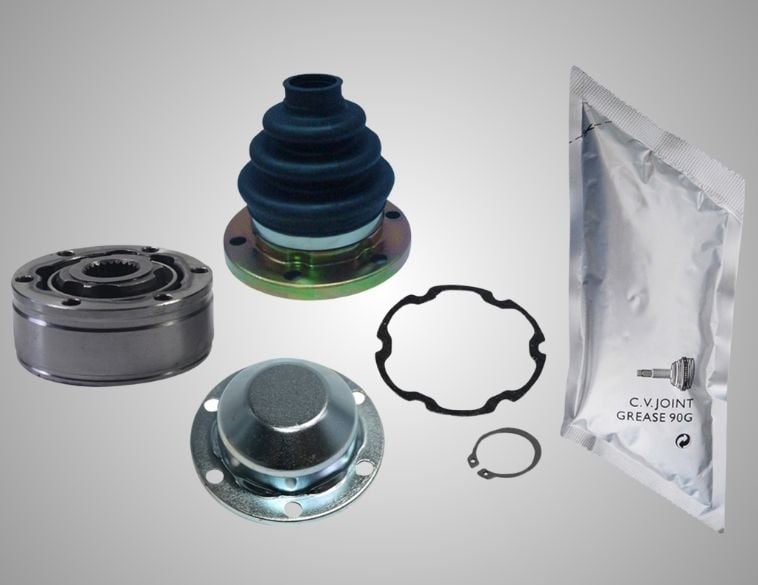The Canadian business reported another strong quarter, with organic sales growth of 7.7% while improving its EBITDA.
FinishMaster US is focusing on initiatives underway to overcome headwinds from the product line changeover, but also from the two hurricanes that impacted important markets, Texas and Florida, during the quarter,” said Henry Buckley, President and Chief Executive Officer of Uni-Select. “While consolidated net earnings are below our expectations, the underlying industry fundamentals are positive, and we have both profitable sales growth initiatives and productivity improvement initiatives underway to maximize shareholder value,” added Henry Buckley.
Consolidated sales for the third quarter were $395.8 million, a 24.3% increase compared to the same quarter last year, driven by the sales generated from recent business acquisitions, adding sales of $84.0 million or 26.4% of which The Parts Alliance represents $55.7 million or 17.5%. As well, the Canadian Automotive Group delivered a solid performance with an organic growth of 7.7%. The consolidated organic sales of ‑2.3% were affected by FinishMaster’s product line changeover and the hurricanes. Without these impacts, the consolidated organic sales would have been 2.1%.
The Corporation generated an EBITDA and EBITDA margin of $32.2 million and 8.1%, respectively. Once adjusted for restructuring and other charges as well as net transaction charges related to The Parts Alliance acquisition, EBITDA was $33.9 million (or 8.6% of sales) for the quarter, compared to $30.8 million (or 9.7% of sales) in 2016, an increase of 10.0%. The adjusted EBITDA margin decrease of 1.1% is mainly explained by the different business model of The Parts Alliance UK. Excluding these operations, the variance is explained by FinishMaster US organic growth and the impact of the hurricanes, resulting in a lower absorption of employee benefits and fixed costs, while being impacted by the revenue mix. These impacts were partially compensated by the Canadian Automotive Group and by lower information technology expenses in relation to the internalization of the servers.
Net earnings and adjusted earnings were respectively $11.2 million and $15.1 million. Adjusted earnings decreased by 12.6% compared to the same quarter last year, and were impacted by additional amortization and finance costs related to recent business acquisitions.
Segmented Results
FinishMaster US recorded sales of $206.5 million, up 2.1% from the same quarter in 2016, supported by the recent business acquisitions representing a growth of $23.8 million or 11.8% and offsetting the negative organic growth. The product line changeover and the hurricanes impacted sales by approximately 7.0%. EBITDA for this segment was $24.4 million, compared to $26.7 million in 2016. The EBITDA margin decrease of 1.4% is the result of lower absorption of fixed costs related to the organic growth and the impact of the hurricanes, as well as a gross margin impacted by recent business acquisitions that have a higher percentage of multi-shop owner customers for which discounts are more significant. The reduction of the performance‑based compensation partially offset these factors. FinishMaster US is working on organic sales growth initiatives coupled with productivity improvement initiatives focused on reducing its cost to serve.
Sales for the Canadian Automotive Group were $133.6 million, compared to $116.3 million in 2016, an increase of 14.8%, a direct result of the organic growth of 7.7% as well as the performance of the recent business acquisitions and the strength of the Canadian dollar. Our sales to the independent parts store customers, our Bumper to Bumper® and FinishMaster® corporate stores sales, reported both a positive organic growth, a result of the concerted efforts and initiatives of the management and sales teams as well as the favorable Canadian economic conditions. The EBITDA margin increase of 1.5% compared to 2016 is mainly related to improved gross margin and improved performance of the paint, body and equipment program. These factors were partially compensated by ongoing investments required in relation to the corporate store initiative. Once the integration of the corporate stores and the implementation of the new point of sales systems will be completed, additional synergies and efficiency are expected.
The Parts Alliance UK recorded sales of $55.7 million and EBITDA of $2.3 million. Sales are slightly seasonal for this segment, notably in relation to vacation and holidays, with August being one of the weakest months of year. This partially explains the EBITDA margin for the quarter coupled with a payroll increase during the summer. This segment is growing through business acquisitions and the opening of greenfield store locations. Its company-owned store model generates a higher gross margin than the other segments while requiring a higher level of employee benefits and operating expenses. The Parts Alliance is in the process of integrating its acquired store operations.
Nine-Month Period Results
Consolidated sales for the nine-month period were $1,033.3 million, a 14.0% increase compared to the same period last year, driven by the sales generated from recent business acquisitions, resulting in additional sales of $162.0 million or 17.9%, as well as by the performance of the Canadian Automotive Group that overcame its loss of an independent member and generated positive organic growth. The consolidated organic sales were affected by the product line changeover and the hurricanes in the US. Without these impacts, the consolidated organic growth would have been approximately 1.2%.
The Corporation generated an EBITDA of $84.9 million, while adjusted EBITDA amounted to $89.5 million, representing an increase of 8.8% compared to the same period last year. Adjusted EBITDA margin decrease of 0.4% is mainly attributable to a different business model at The Parts Alliance UK. Once these operations are excluded, the remaining variance is explained by the organic growth of FinishMaster US and the impact of the hurricanes, which were partially compensated by the performance of the Canadian Automotive Group as well as by lower information technology expenses.
Net earnings and adjusted earnings were respectively $35.9 million and $42.7 million compared to $45.6 million last year. Additional amortization and finance costs related to recent business acquisitions explain the decrease in adjusted earnings.
Segmented Results
FinishMaster US recorded sales of $615.7 million, up 7.6% from the same period in 2016, strengthened by the recent business acquisitions representing a growth of $94.7 million or 16.5%. The product line changeover and the hurricanes impacted sales by approximately 7.5%. EBITDA for this segment remained constant at $71.7 million. EBITDA margin decreased by 0.8%, the result of a lower absorption of fixed costs related to the organic growth and the impact of the hurricanes as well as a gross margin impacted by recent business acquisitions having a higher percentage of multi-shop owner customers for which discounting is more significant. FinishMaster US pursued the expansion of its network during the first nine months of 2017, enlarging its footprint and reinforcing its number one position in major markets.
Sales for the Canadian Automotive Group were $361.9 million, compared to $334.2 million in 2016, an increase of 8.3%, driven by the organic growth performance of the segment, the recent business acquisitions and the strength of the Canadian dollar. This segment’s organic growth improved quarter after quarter for both our sales to the independent customers and corporate stores sales, which overcome the loss of an independent member at the beginning of the year. The EBITDA margin increase of 0.6%, compared to 2016, is mainly explained by an improved gross margin and an improved performance of the paint, body and equipment program as well as by lower information technology expenses. These factors were partially offset by higher stock-based compensation.



